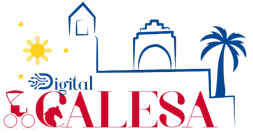It is essential to recognize that the three selected areas of study—Digitalization of the Administration of Justice, Regulation of Artificial Intelligence, and Sustainable Data Economy—are autonomous yet deeply interconnected. These fields share common challenges, regulatory concerns, overlapping perspectives, and social issues that require cross-cutting solutions. While each work package will be led independently by an academic expert, effective coordination and communication among teams will be crucial to ensure a cohesive approach.
Another key aspect to consider is the geographical distribution of the experts involved in the project. Spanish experts are based in Granada, Málaga, Galicia, the Basque Country, and Madrid, while Filipino experts are spread across different regions of the Philippines. While technological evolution presents regulatory challenges, it also provides tools for seamless communication, real-time document sharing, and remote collaboration.
To optimize workflow, the project will implement a shared document management system, granting all CALESA DIGITAL members access to relevant materials. Although each participant will primarily belong to a specific work group, they will have the ability to consult documents from other teams when needed.
The shared document system will be structured as follows:
Shared Folders (Drive)
- General project documents
- Confidentiality agreements
- Work-in-progress reports, divided into sections
- Reference materials and additional resources
Access: All CALESA DIGITAL members will have “reader” access to these folders. Contact persons from FIIAPP will also be granted access.
📌 Editorial Rights: Coordinators will have “editor” permissions and will assign editor roles to key project members.
Bibliographic Management (Zotero)
- Reference management
📌 Access: All CALESA DIGITAL members, including FIIAPP representatives, will have access to a shared Zotero folder.
📌 Standardization: A general bibliographic coordinator will oversee uniformity in citations and references across reports.
Report Structure and Executive Summary
The three reports developed during the first year will follow a standard framework, which each coordinating expert may adapt as needed:
- State of the art, legal framework, and social impact
- Guiding principles and general regulatory objectives for each work package
- Description of specific challenges or key topics, to be defined by each working group
- Conclusions and recommendations to serve as a foundation for legislative proposals
To ensure structured progress, the project will establish milestones, aligned with FIIAPP’s official timelines, to synchronize work between Spanish and Filipino teams while maintaining scientific and regulatory autonomy.
Milestones and Work Plan for the First Year (2025)
The general objective of the CALESA DIGITAL project is divided into two major phases:
1️⃣ 2025 – Preparation of parallel expert reports (Spanish and Filipino)
2️⃣ 2026 – Development of legislative proposals
The 2025 work plan aims to ensure maximum consistency in the research and report development process, while respecting each team’s autonomy and specific needs.
📌 Project Timeline:📌 Objective: Drafting of the general outline for each report by the coordinating expert, considering input from their respective workgroups.
🔹 Milestones:
📅 March 21, 2025 – Virtual Meeting: Digitalization of the Administration of Justice
📅 March 28, 2025 – Virtual Meeting: Regulation of Artificial Intelligence
📅 April 4, 2025 – Virtual Meeting: Sustainable Data Economy
📌 Spanish and Filipino lead experts will hold a coordination meeting to finalize the report structure and ensure alignment from the outset.
📌 Objective: Drafting of the first report versions, following the agreed structure.
🔹 Milestones:
📅 June 20, 2025 – Virtual Meeting: Digitalization of the Administration of Justice
📅 June 27, 2025 – Virtual Meeting: Regulation of Artificial Intelligence
📅 July 4, 2025 – Virtual Meeting: Sustainable Data Economy
📌 Spanish and Filipino lead experts will hold a follow-up meeting to review draft progress and ensure continued coordination.
📌 Objective: Refinement of draft reports and preparation of initial recommendations.
🔹 Milestones:
📅 September 19, 2025 – Virtual Meeting: Digitalization of the Administration of Justice
📅 September 26, 2025 – Virtual Meeting: Regulation of Artificial Intelligence
📅 October 3, 2025 – Virtual Meeting: Sustainable Data Economy
📌 Spanish and Filipino lead experts will conduct a final review meeting, consolidating findings and recommendations for the next phase.
📌 Objective: Presentation of finalized reports.
🔹 Milestone:
📅 October 15-16, 2025 – International Congress at the University of Granada
- Reports prepared by Spanish and Filipino teams will be presented.
- Renowned experts will be invited to provide critical feedback on the findings.
📌 Objective: Final review and submission of reports to FIIAPP.
🔹 Milestone:
📅 November 28, 2025 – Submission of final reports to FIIAPP for review and final comments.
📌 The work plan for 2026 will be published soon.
The CALESA DIGITAL methodology and work plan ensure an organized, collaborative, and interdisciplinary approach to addressing the legal challenges posed by judicial digitalization, AI regulation, and sustainable data economy.
By leveraging digital tools, structured coordination, and shared resources, the project will maximize efficiency while preserving the scientific and legislative autonomy of each team. The project milestones will ensure that the research process remains rigorous, synchronized, and impactful, ultimately contributing to the development of well-founded legislative proposals in 2026.



